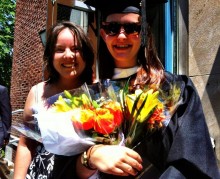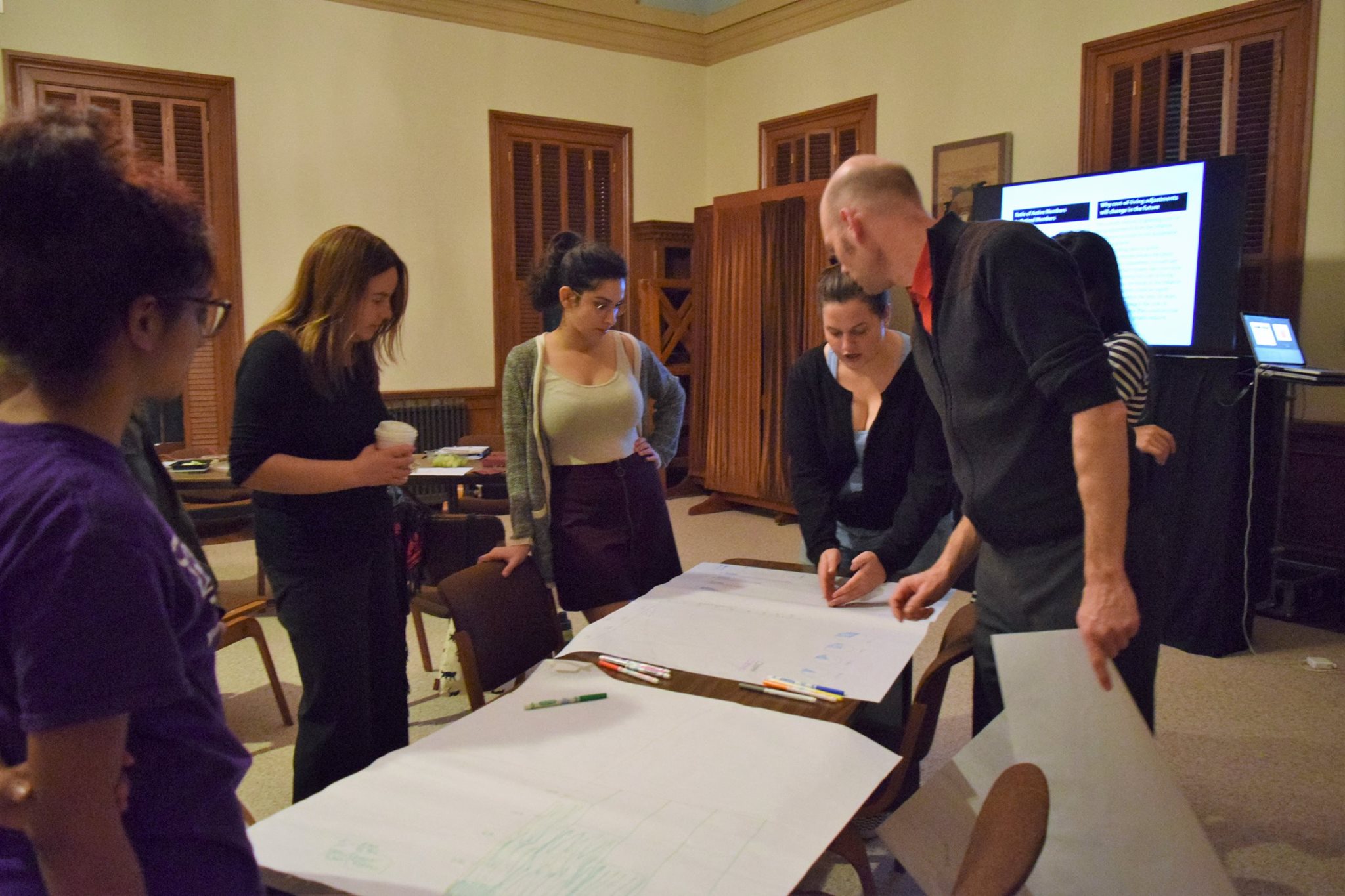Professor and William Isaac Cole Chair in Anthropology
Associate Provost for Academic Administration and Faculty Affairs
Education
Ph.D., York University
M.A., Latin American Faculty of Social Sciences, Quito, Ecuador
B.A., University of British Columbia
About
M. Gabriela Torres is a cultural anthropologist that specializes in the study of the violence– particularly gender based violence– and state formation. At Wheaton College she has taught courses in Medical Anthropology, Global Health, Violence Against Women and Latin America and Latinx Studies. She works regularly as a pro bono expert witness on gender based violence and Guatemala country conditions.
Dr. Torres is committed to innovating higher education by fostering a more diverse and socially just academy. She has worked as Associate Provost for Academic Administration and Faculty Affairs at Wheaton College since 2021 and is completing an ACE Fellowship in 2023-24. Her administrative work has specialized on DEIB strategic planning and implementation processes in hiring, recruitment, and retention; foundation-funded curricular transformation; and regional integration of DEIB efforts including the co-founding of a regional faculty of color mentoring initiative in New England. Dr. Torres is an experienced and trained conflict management professional and was the inaugural Ombudsperson for sexual harassment and assault for the American Anthropological Association from 2018-2021.
Dr. Torres’ dedication to innovation in transforming access to learning in higher education grew directly from her work with students and faculty as an educational developer and founding co-director of Wheaton College’s Center for Collaborative Teaching and Learning (2017-2021). She has been honored for her work on diversity by the American Anthropological Association’s Gender Equity Award (2018), and Wheaton College’s MLK Jr. Legacy Award (2022).
Teaching is a passion for Dr. Torres and she has been a three time awardee of the Faculty Appreciation Award at Wheaton College (2019, 2014 and 2012) and an honorable mention for the same award in 2020.
Selected Publications
Higher Education and Diversity
M. Gabriela Torres. “Beyond Making Statements: The Reflective Practice of Becoming an Anti-Racist Educator.” In Jessamyn Neuhaus (Ed.) Picture a Professor: Intersectional Teaching Strategies for Interrupting Bias about Faculty and Increasing Student Learning. West Virginia University Press. 2022.
M. Gabriela Torres. Anti-Racism, Inclusion, and the Role of Anthropology in Institutional Culture Change in General Education Curricula. In Wies, J.R., & Haldane, H.J. (Eds.) Applying Anthropology to General Education: Reshaping Colleges and Universities for the 21st Century. Routledge, 2022.
Irene Mata, Melva Treviño and M. Gabriela Torres. “The Change Higher Education Needs Today.” Inside Higher Education. May 13, 2022.
Sexual Violence in the Academy
Kathryn J. Holland, Elizabeth Q. Hutchison, Courtney E. Ahrens, & M. Gabriela Torres. Reporting is not supporting: Why mandatory supporting, not mandatory reporting, must guide university sexual misconduct policies. Proceedings of the National Academy of Sciences 118 (52) e2116515118, 2021.
Dianna Shandy and M. Gabriela Torres. Rules Matter: How can professional associations re-map intra-community norms around sexual violence? Signs: Journal of Women in Culture and Society 47(1):209-234, 2021.
M. Gabriela Torres and Dianna Shandy. Transforming Teaching towards Empowered Learning: What #MeToo Taught Us about Anthropology. Teaching and Learning Anthropology, 2(2) December 2019.
Disasters and Gender
Waleska Sanabria-León, Jane Henrici, M. Gabriela Torres, Alitza Cardona, Anna Fairbairn, & Elizabeth Eaton. Cascading Disasters, Gender, and Vulnerability in Southwestern Puerto Rico. Natural Hazards Center Public Health Grant Report Series, 13. Boulder, CO: Natural Hazards Center, University of Colorado Boulder. 2021.
Asylum
M. Gabriela Torres. “Public Anthropology in Asylum Courts.” In Conformity and Conflict: Readings in Cultural Anthropology, ed. by Dianna J. Shandy, David W. McCurdy, James P. Spradley. Waveland Press, 2023.
M. Gabriela Torres. “Culture, Violence, and ‘Marriage’ in the Cases of Guatemalan Women’s Asylum in the U.S.” In Practicing Asylum: A Handbook on Expert Witnesses on Latin American Domestic Violence, LGBTQ, and Mother/Child Cases, ed. by Kimberly Gauderman. Los Angeles: University of California Press, 2023.
Kimberly Gauderman and M. Gabriela Torres. “The Fragility of Particular Social Groups: Rape and LGBTQ Asylum Claims.” In Practicing Asylum: A Handbook on Expert Witnesses on Latin American Domestic Violence, LGBTQ, and Mother/Child Cases, ed. by Kimberly Gauderman. Los Angeles: University of California Press, 2023.
Guatemala, Gender and Gender-Based Violence
Jennifer Burrell, Ellen Moodie and M. Gabriela Torres. From Sparks and Embers: Concluding Reflections on Anthropology, Generation, and Central America. Journal of Latin American and Caribbean Anthropology 25(4): 631-640, 2021.
M. Gabriela Torres. “Engendrando la violencia: El liderazgo militar a través de la crisis moral de la familia nacional guatemalteca.” Gema Kloppe-Santamaria y David Carey Jr. Eds. Violencia y crimen en América Latina: Representaciones, poder y política. Ciudad de México: Centro de Investigación y Docencia Económicas, 2020.
Cecilia Menjívar and M. Gabriela Torres. Trump may wish Guatemala were a safe place for asylum applicants to wait, but it’s not. Los Angeles Times. June 25, 2019.
M. Gabriela Torres. Violated Women, Reason, and Lo Político in the Imaginary of the Guatemalan Nation. Bulletin of Latin American Research 37(2), 2018.
M. Gabriela Torres. “Engendering Violence: Military Leadership through the Moral Crisis of Guatemala’s National Family.” Gemma Santamaria and David Carey Jr., Eds. Violence and Crime in Latin America: Representations and Politics. Norman: Oklahoma University Press, 2017.
M. Gabriela Torres. “Gender Based Violence in Guatemala’s Genocide and Beyond.” In Jennifer Wies and Hillary Haldane, editors. Applying Anthropology of Gender Based Violence. London: Lexinton Books. 2015.
M. Gabriela Torres, “In the Shadow of the Razor Wire: Class and Insecurity in Guatemala’s Urban Core.” Anthropologica. 57(1) (2015).
M. Gabriela Torres “Daily Dead: The Art and Labor in the Framing of Guatemala’s Dead.” Anthropology of Work Review 35(1) (2014): 14-24.
M. Gabriela Torres and David Carey Jr. “Precursors to Femicide: Guatemalan Women in a Vortex of Violence.” In Latin American Research Review 45(3), 2010: 142-164.
M. Gabriela Torres, “Imagining Social Justice amidst Guatemala’s Post-Conflict Violence.” In Studies in Social Justice, 2(1) (2008):1-11.
M. Gabriela Torres, “Bloody Deeds/Hechos Sangrientos: Reading Guatemala’s Record of Political Violence in Cadaver Reports.” In Menjivar, Cecilia and Rodriguez, Nestor, editors. When States Kill. Austin: University of Texas Press. 2005. (p.143-169).
Feminisms
M. Gabriela Torres. Feminist Anthropology is Team Work. Anthropology News. November 7, 2019.
M. Gabriela Torres and Erin O’Connor. Editor’s Note. Framing the Final Issue on Women’s Movements and the Shape of Feminist Theory and Praxis in Latin America. Special Issues of the Journal of International Women’s Studies Vol 20(8), October 2019.
Erin O’Connor and M. Gabriela Torres. Editor’s Note. Women’s Movements and the Shape of Feminist Theory and Praxis in Latin America. Special Issues of the Journal of International Women’s Studies Vol 20(6), June 2019.
M. Gabriela Torres. “Gender-Based Violence and the Plight of Guatemalan Refugees.” Hot Spots, Cultural Anthropology website, January 23, 2019. (with translation into Spanish).
M. Gabriela Torres. Sexual Assault in Intimate Relationships: Introduction to Special Issue: Introduction to Special Issue, Journal of Aggression, Maltreatment & Trauma 28(1) (2019).
M. Gabriela Torres. “State Violence.” In Javier Treviño, Ed. Cambridge Handbook of Social Problems Volume 2 (Chapter 52). Cambridge: Cambridge University Press, 2018.
Gender-Based Violence Books
M. Gabriela Torres and Kersti Yllö. Eds. Sexual Violence in Intimacy: Implications for Research and Policy in Global Health. London: Routledge, 2020.
M. Gabriela Torres and Kersti Yllo. Eds. Marital Rape: Consent, Marriage and Social Change in Global Perspective. New York: Oxford University Press, 2016.
Recent Distinctions and Awards
- 2022 Martin Luther King Legacy Award. Wheaton College.
- 2020 Quick Response Research Award. Natural Hazards Center.
- 2018 American Anthropological Association Gender Equity Award.
- 2017 School for Advanced Research Campbell Women and Development in the Global South Advanced Seminar Organizer Award. with Kersti Yllö.
- 2016 Marion and Jasper Whiting Foundation Fellowship.
- 2012 Wenner-Gren Foundation Workshop Grant for “Global Perspectives on Sexual Violence in Marriage.”
- 2011 New England Council of Latin American Studies Best Article for M. Gabriela Torres and David Carey Jr. “Precursors to Femicide: Guatemalan Women in a Vortex of Violence.” In Latin American Research Review 45(3), 2010: 142-164.
- 2009-10 American Anthropological Association Leadership Fellow.
In the News
“The Change Higher Education Needs Today,” M. Gabriela Torres (with Irene Mata and Melva Treviño), Inside Higher Ed, May 13, 2022.
M. Gabriela Torres quoted by Alanna Vagianos. Biden Has The Power To Close The ‘Boyfriend Loophole’ In The Violence Against Women Act. Huffpost. March 25, 2022.
“Making the Leap From the Traditional to the Virtual Educational Experience,” M. Gabriela Torres (with Claire Buck and Cary Gouldin), New England Board Higher Education, March 24, 2020.
“How To Transition (Quickly) to Online Instruction,” M. Gabriela Torres (with Claire Buck and Cary Gouldin), UB University Business, March 20, 2020.
M. Gabriela Torres quoted by Beth McCurie, “The Coronavirus Has Pushed Courses Online. Professors Are Trying Hard to Keep Up.” The Chronicle of Higher Education, March 20, 2020.
“Gender-Based Violence and the Plight of Guatemalan Refugees,” M. Gabriela
Teaching Interests
My regular roster of courses includes Latin American Cultures particularly as they are mediated by states, Economics and Anthropology, Medical Anthropology, Gender-based Violence and Anthropological Theory and Methods.
In my courses I am particularly interested in the incorporation of Web-based technologies into the classroom and classroom experiences that engage students in their community. The particular pedagogical approach to “blended learning” that I employ encourages students to engage with online tools as cultural objects that can be used and deconstructed. It has been featured at Bryn Mawr’s 2013 Blended Learning in the Liberal Arts conference.
In the past, students in Anthropology 102 worked on “Blogging Culture”. The Blogging Culture website gives an example of this work.
My teaching has been honored by the graduating classes of 2019, 2014 and 2012 with the Faculty Appreciation Award and an honorary mention to the same prize in 2020.
Student Projects
Collaboration with Anna Fairbairn (’22) and Elizabeth Eaton (’22) on Cascading Disasters, Gender, and Vulnerability in Southwestern Puerto Rico.
Collaboration with Karen Almaraz (’20) on TEI Ontologies of Atrocity Project.
Collaboration with Jessica Kruger (’17) on copy-editing of volume entitled Marital Rape: Consent, Marriage and Social Change in Global Context.

Collaboration with Khaled Sharafaddin (’16) and Caroline Stanclift (’16) to support co-hosting the international scholars workshop entitled “Global Perspectives on Sexual Violence in Marriage.”
Collaboration with Ian Lazzara (’12), Julia Rettig (’11), Evelyn Sanders (’08) and John Campopiano (’08) to study municipal, provincial and federal efforts to create an image of a “clean” or “civil” city for Vancouver’s 2010 Winter Olympics. The Wheaton Quarterly Features this research in the Spring 2009 Issue.
Supervision of Student Research
Mikaela Savarese. 2022. Honors Thesis in Psychology. What’s Lost and What’s Found: The Prevalence of Posttraumatic Growth in
Undergraduate College Students as a Result of the COVID-19 Pandemic. Committee Member.
Anna Van Remoortle. 2018. Honors Thesis in Sociology. Cultural Capital Among Zero Waste Consumers. Committee Member.
Nykia Leach. 2017. Honors Thesis in Public Health. Community Ideology, State Law, School Policy, and the Production of Massachusetts Public Sexual Education. Thesis Co-Adviser.
Zachary Marlay-Wright. 2016. Honors Thesis in International Relations: “Lost in a Crowd: An Investigation of Policies and Urban Refugee Health within Middle and Lower Income Countries.” Committee Member.
Alicia Alvarez. 2015. Honors Thesis in Psychology: “Never Good Enough: Body Image Dissatisfaction Among Native Dominicans and Dominican American Female Adolescents.” Committee Member.
Juan Felipe Riaño. 2014. Honors Thesis in Anthropology: “Ungendering the Intersex Body.” Thesis Adviser.
Bailey McWilliams. 2014. Honors Thesis in Political Science: “Conceptualizing the Paradox Surrounding the Commodification of Andean Quinoa.” Committee Member.
 Sally Anne Dexter. 2012. Honors Thesis in Anthropology: “Consuming Coffee, Drinking Democracy: Fair and Direct Trade Coffee in Alternative Markets.” Thesis Adviser.
Sally Anne Dexter. 2012. Honors Thesis in Anthropology: “Consuming Coffee, Drinking Democracy: Fair and Direct Trade Coffee in Alternative Markets.” Thesis Adviser.
Kyle Glass. 2011. Honors Thesis in Biology “The Angiogenic and Immunomodulatory Effects of Panax notoginseng: An In Vitro and In Vivo Study” Committee Member.
Cassandra Warnick. 2010. Honors Thesis in Anthropology entitled: “Why Do You Honk? An Ethnographic Study of a Festival for Activist Street Bands” Committee Member.
Jacquelyn Michelle Phillips. 2009. Honors Thesis in Religion. “Religion and Social Responsibility: A Cross-Cultural Study.” Committee Member.
Lily Mulcahy. 2009. Honors Thesis in Anthropology. “I’m Too Young for This!: Multivocality in Young Cancer Advocacy.” Committee Member.
Ryan Patch. 2008. Honors Thesis in Economics. “Mass Media and the Effectiveness of Micro-credit in the Municipality of Nueva Guinea, Nicaragua.” Committee Member.
Thomas Skiba. 2008. Honors Thesis in Psychology. “A Grounded Theory Approach to the Study of Dyslexia in Higher Education.” Committee Member.
Ashley Smith. 2008. Honors Thesis in Anthropology. “How Indian Are you anyway? The Abenaki of the Northeast and the ‘Indian Problem’ of the 21st Century.”. Committee Member.
Research Interests
I am an interdisciplinary and collaborative scholar of gender, violence, and inequality. Working through a feminist lens, I have collaboratively co‐authored publications with scholars whose disciplinary training usually differs from my own. I have written in the company of sociologists, historians, playwrights, social workers, psychologists, as well as anthropologists to advance change on gender issues that are of importance to policy makers, communities, and individuals.
My research is focused on the ways that states, enabled by cultural sanctions, shape the character and prevalence of sexual violence. I have explored this issue in three different ways:
- by examining how forced sex is enabled by state and cultural sanction;
- by exploring the impact of gender and kinship norms on women’s political participation and notions of authority in Guatemala; and
- by contributing to the theoretical understanding and assessment of scholarship on state sponsored violence and gender in general terms.
My two co-edited volumes Marital Rape (2016) and Sexual Violence in Intimacy (2020) meld together an interest in state and cultural sanction for sexual violence, health, kinship, and the global differences of state involvement in the arbitration of sexual violence in intimacy. My interest in gendered analysis of legal arguments and expert witness testimony in asylum settings is an application of my theoretical work and is featured in two chapters of the Practicing Asylum (2023) Handbook.
Most recently, my work has been focused on how to improve equity and diversity in institutions. Two recent publications are emblematic of this work: “Reporting is Not Supporting” (2021) published in Proceedings of the National Academy of Science, and an article entitled “Rules Matter” (2021) published in Signs: Journal of Women in Culture and Society.
Advocating for anti‐racist and intercultural teaching, I have published chapters such as “Beyond Making Statements” in the 2022 volume Picture a Professor: Intersectional Teaching Strategies for Interrupting Bias about Faculty and Increasing Student Learning and “The Role of Anthropology in Inclusion Driven Curricular Change in General Education Curricula” also published in 2022 in Applying Anthropology to General Education: Reshaping Colleges and Universities for the 21st Century.
From 2023-2026, I serve as co-editor in chief of Feminist Anthropology.
